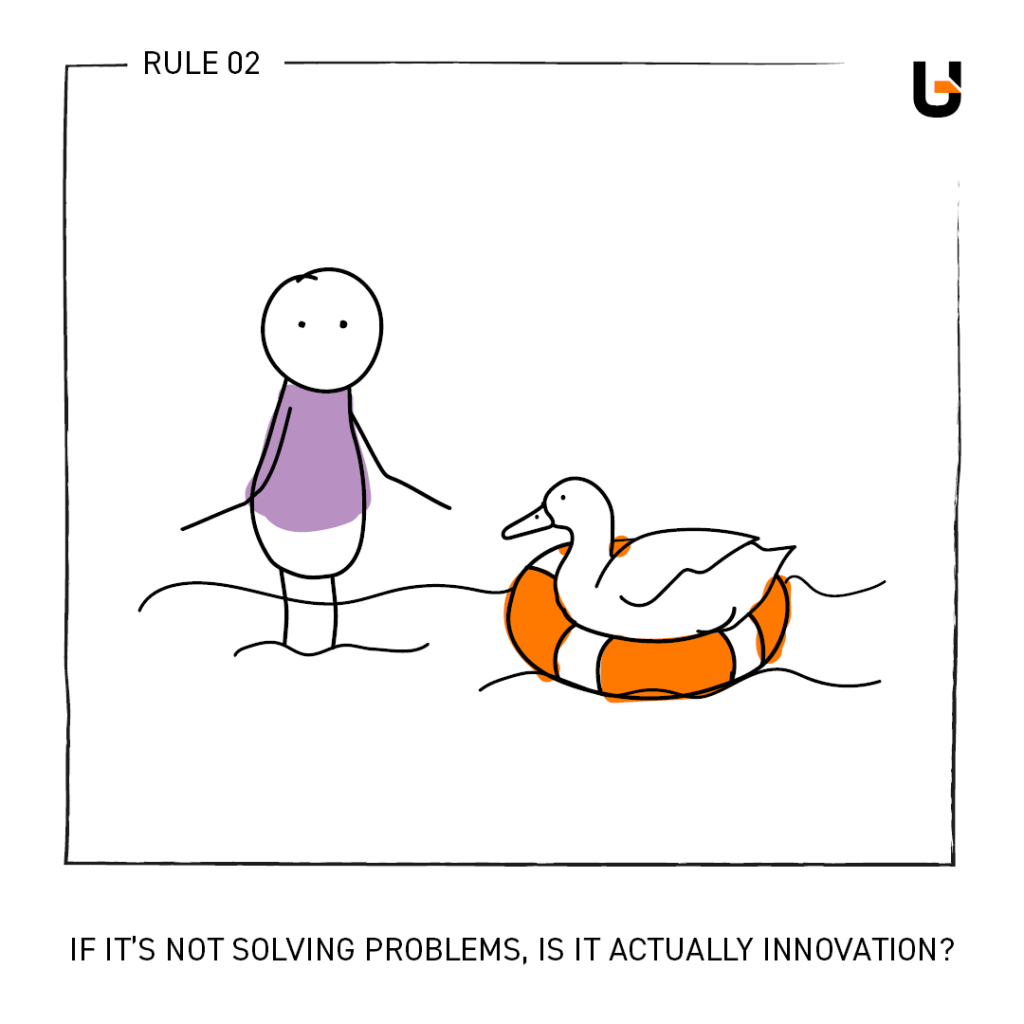Generative Search / Gamechanger or Unwarranted Hype?
By now, you’ve probably heard anything and everything about ChatGPT and friends. Everyone on LinkedIn is talking about it, and most of them are using generative AI to talk about generative AI.
Thankfully, we’re not here to talk about ChatGPT. At least not directly. Instead, we want to talk about Google’s announcements of focusing implementing such technologies into its search engine and the ramifications for businesses that rely on search engines in general as key business drivers.
The future is, of course, still unwritten so while we might not have definitive answers, let’s at least try to answer some common AI-related questions:
- What is a generative search engine and how does Google intend to use it?
- How else are generative AI being used by businesses?
- Will generative AI revolutionize search?
- What can you do to prepare or adapt?
- … and do Androids Dream of Electric Sheep?
And yes, we know that Bing has already implemented their own Generative AI for search but… it’s still Bing. It doesn’t lead the market, so its own Chat-GPT based generative AI won’t revolution search yet.
What is a Generative Search Engine?
A Generative Search Engine is a search engine powered by generative AI. Instead of showing results based on traditional search engine optimization metrics, it instead shows results as filtered and chosen by the AI, adapting to the more specific nuances of the input it receives from the user.
How Does Generative AI for Search Work?
In search engines, users often type in their search terms of queries in order to generate specific results. A generative AI search engine will work the same way, but it’s ability to understand prompts better is seen as a key benefit over the current approach.
Traditional engines still follow a “like for like” pattern of reasoning. If a user looks for yellow shoes, engines like Google typically crawl text to find this – or similar – terminology in the text. It can even identify the term as a specific object, and then showcase those objects in shopping widgets and other panels. Nonetheless, it is looking to make direct connections between the inputted query and the listed results. It’s the same with content, too – so we apologize for using the term “generative AI” over and over, but that’s just part of the game 😉

However, we also need to make a note regarding Generative Search Engine vs Generative Search Experience. Currently, no search engine is truly generative. Instead, even Google themselves refer to it as a “Generative Experience”. It’s an upcoming feature to be included in the search engine results page (SERP) rather than replacing the existing elements.
But Here’s Why Generative AI Won’t Revolutionize Search Yet
Panicking is an incredibly easy thing to do, but that doesn’t mean the threat is always real. While it’s easy to imagine an AI-dominated world, we’re still some ways away from living in it. Just look at self-driving cars…
Companies such as Tesla have been producing the technology for years, but they still can’t hit the roads. Popular barriers include the fact that the technology still isn’t fully developed, that it needs to agree with other “analogue” users and that legislature is far behind in accepting its public usage.
Generative search, certainly in regard to its overlap with business, has many of the same hurdles to overcome.
Search Engines Still Need to Make Money
In 2022, Google made more than $224 billion in global advertising revenue, with around $162 billion of that coming directly from search ads.
A fully generative search engine might have an impact on these ads. After all, if the main results are completely personalized and tailored to detailed input, do ads still have the same competitive advantage? The UI and UX will still need to ensure the visibility and positioning of these lucrative inserts.
Google’s business model – it’s profitable value – doesn’t come from providing perfect search results. It comes from giving businesses a direct means to advertise. Consequently, such businesses will not fully move to new models without ensuring the same advertising capabilities are in place. Easy and efficient search results are what Google does to generate users. It then enables businesses to access or otherwise use that audience. It’s no different to Facebook, Instagram or Pinterest.
In fact, that’s why the current design puts generative search results above the organic listings but below the paid promotions.
And this is where we still expect to see a lot of progress. Currently, search engines and online businesses in general need to disclose when something is an advert or a paid promotion.
It’s Not the Only Channel
While more than 70% of Google’s advertising revenue came from search ads, there’s still around 27% that comes from other advertising sources. When we consider the likes of the wider display network, it’s clear that promotions on other platforms and websites is still a key driver of sales for many companies.
We can also look outside of Google. Other companies, like Zalando, are implementing generative AI as an additional channel. While such bots may interact through websites or mobile apps, they are not required to use them. As such, they’ll reach a more engaged audience, creating a new niche, rather than replacing one…. At least for now.

It’s possible in the future that one AI will connect to another, and business as we know it will change. But we don’t think that’s happening anytime soon. It’s still clear that users want to be able to browse, inspect and examine both goods and services on their own. AI, and generative search as a whole, serves to aid this purpose, but currently isn’t built to replace it.
Can Google’s AI fully understand your intent? Can Zalando’s AI suggest products in line with your personal style? Right now, we’d say no. Recommendation engines can often find like-for-like comparisons, but for an AI to understand the particular nuances of personal style requires a great deal of input from the end user. Only time will tell how much users are willing to define at the earlier stages of their searches – the role Google often fulfils.
Transparency is Still Critical
When it comes to online search and even the way that businesses conduct themselves online, GDPR was arguably one of the biggest game changers. It forced companies to be transparent, show what users are opting in for and, in general, not to hide such key information away.
It can be fully expected that AI undergoes the same process. Indeed, AI accountability has already become a topic in some sectors.
We mentioned Zalando earlier, and the idea of using generative AI to suggest clothing is certainly innovative. But, as with Google’s generative search, how much information is being shown to the user? What happens when they ask to see how the AI came to this conclusion?
If an individual enters a store and the salesperson immediately recommends the most expensive items, or the items with the biggest markup, without listening to the customer, the latter would feel very pushed. Ultimately, they would feel unappreciated. With AI, do we not have the same issue? How does the user trust that this advice is genuine, and not a pre-emptive prompt from the store to sell its highest earners?
In these cases, brand loyalty might count for a lot. And this could be a potential test for Google – after all, its brand loyalty is based on immediate convenience, rather than a deep understanding of the individual.
And this isn’t fantastical speculation either – Amazon has already flouted the ability for brand-written responses as part of it’s Alexa home assistant.
The Market Will Always Adapt
One of the biggest concerns with the rise of AI, other than Skynet, is that it will impact the SEO industry and the ability for companies to have organic reach. And this isn’t true at all – more likely, the market will adapt. SEO will give way to Generative Search Engine Optimization. GSEO… it’s not as catchy, but the principles will still remain the same.
Where customers go, so too do businesses. We made it from the phonebook to the search engine, and we’ll make this next minor leap all the same.
Even Google is pairing generative AI with generative AI. Alongside the search functionality discussed here, they can pair this with generative experience ads as well, effectively bringing the ads in-sync with the custom, personalized responses of the main engine. Of course, there’s still a lot to figure out there (how would Google ensure competing ads still say unique?) but we trust the big brains somewhere to come up with an answer.
So How Should You Prepare?
In all honesty, it’s hard for companies to prepare for an AI world before it happens. If – or more likely, when – generative search rolls out, companies will adapt as they always have. They’ll look at existing results in their analytics, create a hypothesis, and then test to see if there is an improvement.
…And you can be sure that every marketing agency on LinkedIn will reach out to offer “AIEO as a service” 😉
(But can we also agree that AIEO sounds weird… isn’t that what Old McDonald said?)
The best advice we can give is to ensure you’re using AI and have the tools and knowledge already implemented, in order to best adapt and keep up with the changes. Familiarity is the best way to prepare against upcoming, but still uncertain, changes. And let’s be clear: they are coming.








